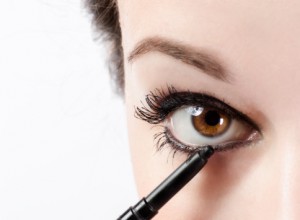 Eye makeup is used by many women, and some wouldn’t even think about leaving the house before applying their mascara or eyeliner, but if used improperly there can be potential risks when applying these products.
Eye makeup is used by many women, and some wouldn’t even think about leaving the house before applying their mascara or eyeliner, but if used improperly there can be potential risks when applying these products.
Some of the most common eye problems associated with wearing eye makeup include:
• Scratched Corneas – This can occur when applying makeup with your mascara applicator or eyeliner and can lead to a serious infection
• Conjunctivitis (or pink eye) – This is probably the most common eye problem and it usually occurs after bacteria grows in eye makeup
• Allergic Reactions – This can result in redness, irritation, eye swelling, or infection.
Follow these safety tips to avoid injury and keep your eyes healthy AND beautiful.
• Throw Away Makeup after Three Months – This might be tough given the cost of some products, but bacteria can begin to grow if makeup is not properly concealed.
• Never Share – Your eye makeup should be yours and yours alone. When at the sample counter, only use fresh applicators.
• Apply Eyeliner Outside the Lash Line – This will protect the glands on the upper and lower eyelids which secrete oils that protect the eye’s surface and prevent scratching of the cornea.
• Replace All Eye Makeup after an Infection – Failure to do this could result in a recurrence of an infection.
• Remove Makeup at the End of the Day – Your eyes are sensitive and even the smallest amount of eye makeup could seep into your eyes while you sleep.
• Introduce Only One New Product at a Time – If you apply multiple new products simultaneously, it would be hard to determine the source of a potential allergic reaction
If you do develop an infection or allergic reaction, call your eye doctor immediately. If you do not have one, Flushing Hospital’s Ophthalmology Center can treat a wide array of eye conditions. To make an appointment, please call 718-670-5486.
All content of this newsletter is intended for general information purposes only and is not intended or implied to be a substitute for professional medical advice, diagnosis or treatment. Please consult a medical professional before adopting any of the suggestions on this page. You must never disregard professional medical advice or delay seeking medical treatment based upon any content of this newsletter. PROMPTLY CONSULT YOUR PHYSICIAN OR CALL 911 IF YOU BELIEVE YOU HAVE A MEDICAL EMERGENCY.
